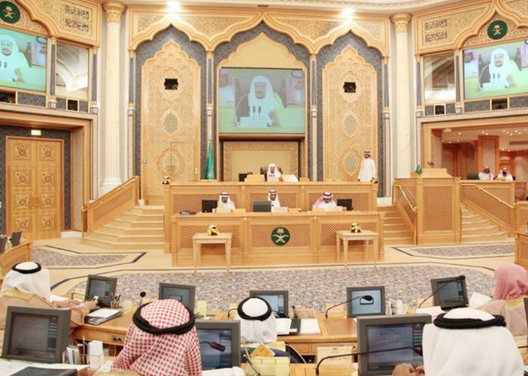A parliament is a legislature. More generally, “parliament” may simply refer to a democratic government’s legislature. The term is derived from the French parlement, the action of parler (“to speak”): a parlement is a discussion. The term came to mean a meeting at which such a discussion took place. It acquired its modern meaning as it came to be used for the body of people (in an institutional sense) who would meet to discuss matters of state. Generally, a parliament has three functions: representation, legislation and parliamentary control (i.e., hearings, inquiries).
In terms of the Majlis As Shura’s authority, there is a need to update and change the Shura Council Law which was introduced in March 1992 (22 years ago). A lot has changed and the needs of society have evolved over the last few years. Citizens’ debates are found to exist in all the social media on all issues. The new law of the Shura Council should give full power and authority to question each and every cabinet member, officials at minister grade and other very senior officials (mumtaza) grades and heads of government organizations.
There is so much going on outside the cabinet level that much is required to follow up with senior officials making them accountable for their actions. The new law of the Shura Council should allow the Shura to invite any senior government officials (ministers or rank of minister) to stand in front of the Council for questioning. Ministers will have to show up and cooperate.
The selection criteria of the Shura should also change. During the 2009–2013 term, half of the members (43% of the new appointees) had a university education in the United States, and 70 of them had PhDs. The Shura members for the 2009–2013 term are considered to be technocrats who are experts rather than local leaders. Their educational background was as follows: 16% bachelor’s degrees; 13% master’s degrees; 70% PhDs; and 1% MDs. PhD holders aren’t always the best choice.
Also the Shura should not be a retirement ‘reward’ for high-level government employees; especially those in rank 14 and 15. The Shura has also been used to move out officials not needed or wanted elsewhere. A minister, for example, may not be able to fire a deputy but he can nominate them to the Shura. Regardless of how one is named to the Shura, the maximum term of service should be 2 terms (8 years) for each member.
What should not change is the drive to include more female representation. In January 2013, King Abdullah issued two royal decrees, granting women thirty seats on the council, and stating that women must always hold at least a fifth of the seats on the council. This is a first great step but female representation has to increase as we go forward. Constructive and durable change is most likely to come by working within the system. In Switzerland women got the vote only in 1971.
Finally, we currently have a state minister who is in charge of the Shura council. This is not ideal and interferes with the critical line of Shura reporting that leads directly to the Prime Minister. The new Shura Law should mandate that the Shura and the Bureau of Experts work in direct and full coordination.
—
John Sfakianakis is the Chief Investment Strategist of MASIC, the Riyadh-based investment and asset management company, and a regular contributor to SUSTG.org.









